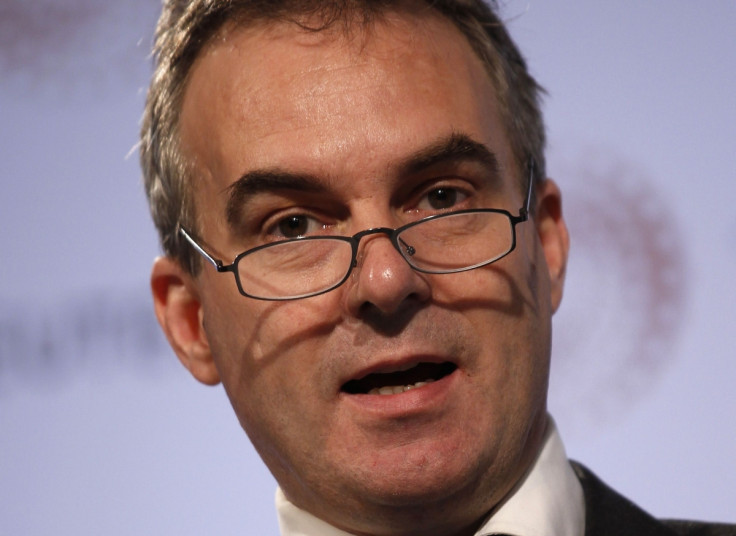BoE's Ben Broadbent: Ending 'Too Big to Fail' Doesn't Mean Breaking Banks Up

A senior Bank of England official said he does not think the biggest banks should be broken up because he wants to create a financial sector where "no size is too big to fail".
During the financial crisis many governments across the world, including the UK, had to step in and bail out large institutions to save them from collapse. This is because they were deemed to be so big that their failure would cause serious economic damage.
There have been calls to break up the biggest institutions to prevent a similar situation happening, again as well as create more competition in the financial market.
"It's clearly important to allow for the possibility, or to escape the moral hazard of insuring the system, that any bank is not too big to fail," said Dr Ben Broadbent, a member of the BoE's rate-setting monetary policy committee (MPC) and former Goldman Sachs economist, at a conference put on by the Institute for Economic Affairs (IEA) thinktank.
"That doesn't necessarily mean shrinking them, it means that they have a structure that allows them to fail. [That] they have sufficient loss-absorbing capacity on their balance sheet.
"That's the point. I don't think it's targeting a particular size. I want to make sure that no size is too big to fail."
Banks are being forced by the BoE, a financial regulator, to hold more capital than they had to before the crisis.
Capital rules demand that banks hold a certain amount of cash or liquid assets as insurance against their risky liabilities. This means if the riskier side of banks' businesses go bad, the bank has enough capital to buffer itself without needing the state – meaning taxpayers – to step in and save it.
Mark Carney, governor of the BoE, has said banks can no longer rely on the state to dig them out of a financial hole as they did during the crisis.
"Banks went into the financial crisis carrying de minimis levels of capital," Carney told The Sydney Morning Herald.
"They carried basically no liquidity protection and they were reliant on the state to insure. The consequence was that we had a crisis where even countries that did the right thing in advance, such as my native Canada and here in Australia, had to take extraordinary measures to support the banks.
"We can't have a system – and G20 leaders have made that clear here – we can't have a system where some of those institutions that are pushing back on this are still reliant ultimately on the state and are getting a massive subsidy from the taxpayer."
Ed Miliband, leader of the opposition Labour party, has floated the idea of breaking up some of the UK's biggest banks.
He said if he is elected at the 2015 general election he will order a review by competition regulators into whether bigger institutions should be carved up into smaller ones.
A number of smaller 'challenger' banks have already appeared in the UK's retail banking sector, something politicians are trying to encourage more of.
© Copyright IBTimes 2024. All rights reserved.






